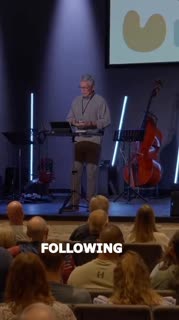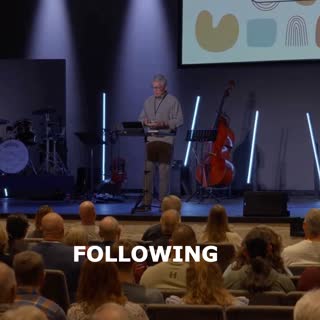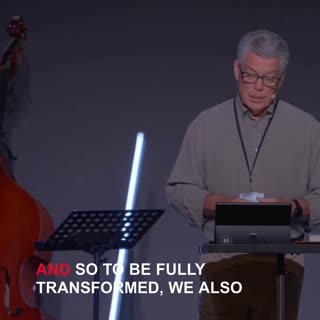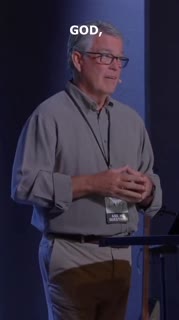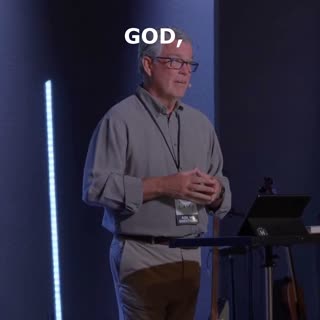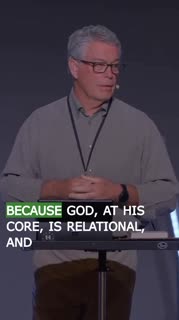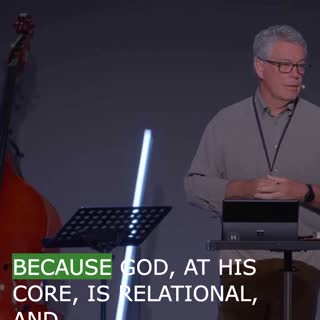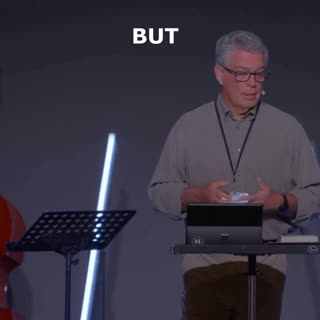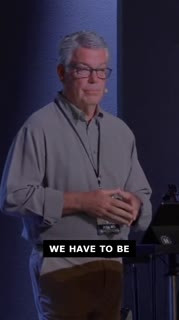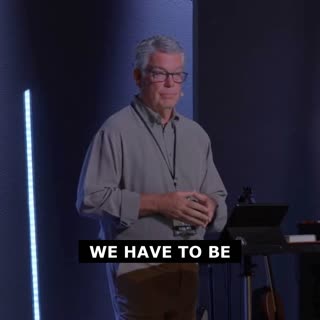Intentional Spiritual Formation: Embracing Community in Christ
Devotional
Sermon Summary
Bible Study Guide
Sermon Clips
"Following Jesus, being a disciple, being an apprentice to Jesus is a lifelong journey. That's a really great way to see this. This is a lifelong journey. Like all journeys, it's going to have ups, it's going to have downs, it's going to have times when it's easy, it's going to have times when it's hard. It's going to have times when it's hard. This is a journey, and they say a journey of a thousand miles begins with a single step. So we have literally taken eight really great first steps. And so we're going to be picking up on this topic in the months to come and dive in a lot deeper." [00:35:28] (29 seconds)
"And so to be fully transformed, we also have to meet God in our pain and in our suffering. And on this journey, one of the big roadblocks to this journey of transformation is sin. So we talk through the layers of sin and how God is faithful, not just to forgive, but to heal us from sin so that we can be fully transformed." [00:33:29] (21 seconds)
"God, by his nature, right, at his core, is a relational being. That's who God is. Scholars call him a triune God, right? That means he exists as three unique persons in a relationship. Father, Son, Holy Spirit. And I'll say this again. God exists as a relationship. That is his way of being." [00:37:02] (26 seconds)
"Because God, at his core, is relational, and because he created us in his image, and because he created us in two parts, you can't image God on your own. I can't either. We can only serve our purpose on earth together. And this is why God said in Genesis 2 .16, it's not good for man to be alone. Why? Because man can't fulfill his purpose alone." [00:44:42] (28 seconds)
"But when we talk about church, I don't just mean this. I don't just mean this gathering on Sundays. This is amazing. I love this. This is one of the best parts of the week for me. I love it. But God works in all shapes and sizes and styles of church, right? But it's usually in the smaller, more relational spaces where real transformation happens." [00:56:10] (21 seconds)
"We have to be intentional. Remember, this is all about us intentionally participating in the miracle of our transformation. This is all about us intentionally being part of the miracle. Of Jesus making us more like him. Intentional spiritual formation. We have to be intentional. And for a lot of us, that starts with finding a smaller group." [01:01:43] (18 seconds)
Ask a question about this sermon
"And so to be fully transformed, we also have to meet God in our pain and in our suffering. And on this journey, one of the big roadblocks to this journey of transformation is sin. So we talk through the layers of sin and how God is faithful, not just to forgive, but to heal us from sin so that we can be fully transformed." [00:33:29] (21 seconds)
"God, by his nature, right, at his core, is a relational being. That's who God is. Scholars call him a triune God, right? That means he exists as three unique persons in a relationship. Father, Son, Holy Spirit. And I'll say this again. God exists as a relationship. That is his way of being." [00:37:02] (26 seconds)
"Because God, at his core, is relational, and because he created us in his image, and because he created us in two parts, you can't image God on your own. I can't either. We can only serve our purpose on earth together. And this is why God said in Genesis 2 .16, it's not good for man to be alone. Why? Because man can't fulfill his purpose alone." [00:44:42] (28 seconds)
"But when we talk about church, I don't just mean this. I don't just mean this gathering on Sundays. This is amazing. I love this. This is one of the best parts of the week for me. I love it. But God works in all shapes and sizes and styles of church, right? But it's usually in the smaller, more relational spaces where real transformation happens." [00:56:10] (21 seconds)
"We have to be intentional. Remember, this is all about us intentionally participating in the miracle of our transformation. This is all about us intentionally being part of the miracle. Of Jesus making us more like him. Intentional spiritual formation. We have to be intentional. And for a lot of us, that starts with finding a smaller group." [01:01:43] (18 seconds)
